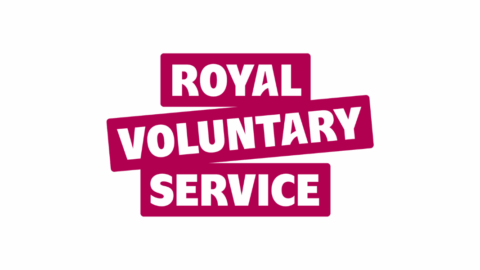Before going further with the discussion of professionalisation and volunteer management, it’s useful to recap on where we might think volunteer management fits on the scale of job, occupation and profession.
Is volunteer management my job, my occupation or my profession?
What stage are you at?
It’s clear we’ll all have different answers to this question. So it’s a great place to start this discussion because how we answer it, leaves us with a useful grounding when we come to look at the issue of professionalisation of volunteer management.
If a job is an activity with an economic role usually directed toward making a living, what is an occupation? And how is that different from a profession?
What is an occupation?
Occupation – a cluster of job-related activities constituting a single economic role that is usually directed toward making a living. (The Social Organisation of Work, p.447, Randy Hodson, Teresa A. Sullivan (2007)
This is a pretty broad definition. It also ties volunteer management – the occupation – to the idea of making a living. This is problematic if we’re looking for a definition that can include those in volunteer management working on a voluntary basis. We’ll come back to this issue in more detail in a future post.
Going by this definition, a contender for the moment that volunteer management became an occupation might be when it began to be more common to see full-time volunteer management roles – or at least roles where the central focus of a part-time role was on volunteer management.
More often in the academic literature on professionalisation, the word “occupation” is defined in opposition to “profession”. For example:
“Persons engaged in an occupation are not paid for their knowledge, but only for what they produce.”
Others emphasise that what distinguishes an occupation from a job is the scope for career development. As career development opportunities within the volunteer management field have grown, so it has developed as an occupation.
While career development within volunteer management is possible, it remains a field where the turnover of people involved remains relatively high.
By asking whether volunteer management is an occupation, we can start to see more clearly whether the foundation exists to develop a profession. Much of the criteria we might want to use to assess how far down the route of professionalisation volunteer management is, can also be used to assess how mature it is as an occupation.
Employers fail to recognise their employees’ occupation
In the early stages, where a job may develop into an occupation, employers who create and support those jobs are incredibly influential in the process. Arguably, as occupations professionalise, the balance of influence shifts between the individual professionals and the organisations who employ them.
As a result, key stakeholders in the early development of volunteer management are the employers of volunteer managers. Changing perceptions of employers of volunteer managers may be one of the most single influential factors in the development of volunteer management as an occupation.
Yet in many cases looking at job descriptions advertised, it’s common for employers still to see volunteer management as a function, rather than as a rounded occupation. If an occupation is a “cluster of job-related activities”, employers can tend to see volunteer management as just one specific activity and miss the bigger picture.
Lack of funding for volunteer management or lack of understanding of the return on investment, may make employers reluctant to go beyond seeing volunteer management as a function and develop full-time volunteer management roles which are fully integrated in their organisation.
This situation may be due to a number of factors such as a lack of research, evidence and public awareness of the value of volunteer management. This can lead to a kind of chicken and egg scenario in the step towards becoming an occupation, where employers don’t design roles that reflect volunteer management as an occupation, which in turn reinforces employers’ perception that volunteer management is not an occupation.
The result is that volunteer management may often be something people are employed to do as part of a wider job description.
In some organisations, volunteer management may not even be seen as a primary part of the work of many of those who manage volunteers, merely as a secondary consequence of other aspects of the role. For example, fundraisers who have manage volunteer fundraisers, operational staff recruited to run services that support their service user through the engagement of volunteers, etc.
There could be a number of reasons for employers to act in this way (with all the consequences it has for the development of volunteer management as an occupation):
- lack of recognised pathways into volunteer management
- lack of understanding of how to evaluate volunteer management skills and experience
- lack of understanding of the scope of volunteer management, etc.
This brings us back to these criteria for professionalisation. They can give us a sense not just of the professionalisation of volunteer management, but also how developed it is as an occupation.
A key mile stone for the development of volunteer management as an occupation has to be the introduction of the National Occupational Standards (NOS) for the Management of Volunteers (PDF) in 2003 and their revision in 2008.
In 2003, a key challenge was the link between standards for individuals (NOS), with the development of standards for organisations (Investing in Volunteers). In 2008, the revision of the NOS included the challenge of linking these standards with accredited qualifications and learning in volunteer management.
For the first time, those in volunteer management were involved in agreeing a collective response to the questions of identifying the scope, performance standards, experience, personal qualities, knowledge and skills that form part of the emerging occupation in volunteer management.
The NOS framed the work of the occupation of volunteer management as covering:
- A. Develop and evaluate strategies and policies that support volunteering
- B. Promote volunteering
- C. Recruit place and induct volunteers
- D. Manage and develop volunteers
- E. Manage yourself, your relationships and your responsibilities
- F. Provide management support for volunteering programmes
It is also suggested a list of those in an organisation who may have an interest in the standards of this occupation:
- Chief executive
- Volunteer coordinator
- Project manager
- Volunteering manager
- Director of resources
- Information and advice officer
- Volunteer leader
- HR personnel
- Voluntary services manager
- Trustee
We’ll revisit some of the stumbling blocks that volunteer management has had, and continues to have, in its development as an occupation.
In summary, before we begin the debate on volunteer management and professionalisation, we need to recognise the diverse range of viewpoints we have based on where we feel we are on the scale of job, occupation and profession; where we’ve come from and where we’re interested in going.
==========
Archive: blog post by a former AVM Board member





Thanks Patrick – a very helpful table of ‘Job-Occupation-Profession’.
I assume the AVM is now focusing it’s efforts on developing its code of ethics, promoting entry routes and providing guidance on CPD?